In light of the recent COVID-19 outbreak, Vietnam has imposed several travel restrictions on those entering the country. As of May 15, 2022, Vietnam had confirmed 10,695,036 cases of COVID-19 with 43,065 deaths, though 9,349,592 of the patients, had recovered.
Those planning to travel to Vietnam should be aware of the latest restrictions currently in place:
- Vietnam dropped COVID-19 testing requirements for all international arrivals from May 15 as per Official Dispatch No. 416/CD-TTg after a significant decrease in the number of cases.
- Vietnam suspended the medical declaration requirement for all international arrivals from April 27 as COVID-19 cases dropped nationwide. Medical declarations for domestic travel have also been suspended.
- Vietnam’s Ministry of Health on March 15 released COVID-19 entry procedures for foreign arrivals as per Official Letter No 1265/BYT-DP. As per the Document, foreign arrivals are required to:
- Take a COVID-19 negative test using the RT-PCR method 72 hours before entering Vietnam OR a rapid Antigen test (no self-test) 24 hours before entering Vietnam. This does not apply to children under 2 years of age;
- Make a health declaration (screenshot at end of article) before entry and download the PC-COVID app; and
- In case a COVID-19 test is not taken prior to departure, a test will be taken within 24 hours after arriving in Vietnam. If negative, travelers can travel anywhere within Vietnam; no quarantine required.
- Tourists entering Vietnam should also have medical or travel insurance that covers COVID-19 treatment with a minimum liability of US$10,000.
- The e-visa government website link is now open for visa submissions.
- Vietnam’s government on March 15 agreed to resume its visa exemption policy for 13 countries for up to 15 days regardless of the purpose of entry. This applies to citizens of Belarus, Denmark, Finland, France, Germany, Italy, Japan, Norway, Russia, South Korea, Spain, Sweden, and the UK. The visa exemption policy had been in place prior to the pandemic. Further details on entry procedures are awaited from the government.
- The government has agreed to reopen Vietnam for international tourism from March 15. A detailed reopening plan is expected to be released soon by the relevant government authorities.
- Vietnam lifted restrictions on the frequency of regular international flights from February 15 as per the Civil Aviation Authority of Vietnam.
- Vietnam scrapped the quick test for COVID-19 for international arrivals before boarding and after arriving in Vietnam. The measure had earlier been imposed for travelers coming from countries that had detected the Omicron variant. However, the negative RT-PCR COVID-19 test, 72 hours prior to boarding for international arrivals remains.
- The government on January 18 issued a new Directive allowing foreign employees and overseas Vietnamese with valid TRCs, PRCs, and visa exemption certificates to enter Vietnam without approval from the immigration department and the local peoples committee.
- Vietnam’s Immigration Department has announced that it will discontinue the automatic stay extension for foreigners stranded in Vietnam from January 15. The stay extension measure had earlier been applied to foreign tourists who had entered the country since March 1, 2020, due to border restrictions caused by the pandemic.
- Travelers coming from countries that have detected the Omicron variant will have to undergo a quick test for COVID-19 before boarding and when they arrive in Vietnam at their own cost. In addition, the self-quarantine locations such as residences and hotels must be as per standards as per the Ministry of Health, otherwise, they will have to undergo quarantine in centralized facilities. Airlines have asked authorities to scrap the quick test requirements as travelers are required to have a negative RT-PCR test 72 hours prior to boarding.
- While Vietnam approved the resumption of international flights with nine destinations from January 1, 2022, only five international routes have been confirmed such as to the US, Japan, Taiwan, Cambodia, and Singapore.
- Hanoi scrapped the centralized quarantine rule for travelers that come from countries that have detected the Omicron variant as per transport authorities.
- The transport ministry has stated that passengers from Ho Chi Minh City and Can Tho do not need to provide negative COVID-19 tests before boarding for flights. Only passengers from very high-risk localities or locked-down areas would have to provide test results within 72 hours.
- Travelers entering Vietnam for business purposes for less than 14 days will be exempt from quarantine requirements as per the Ministry of Health, however, they must comply with pandemic prevent measures including staying at separate accommodations. Further details are likely to be provided by the MoH.
- Vietnam has reduced quarantine requirements for fully vaccinated international arrivals from January 1, 2022. Arrivals with negative COVID-19 RT-PCR test results would only need to self-quarantine at home or their places of accommodation for three days when they enter Vietnam. Two RT-PCR tests will be conducted on the first and third day of entry. If negative, entrants are still required to monitor their health for the next 11 days. Further details are likely to be released by the health and transport ministries.
- Vietnam’s government has approved the resumption of international flights between Vietnam and nine destinations from January 1, 2022. These include San Francisco or Los Angeles, Singapore, Bangkok, Phnom Penh, Vientiane, Beijing or Guangzhou, Tokyo, Seoul, and Taipei. Further details on schedules and entry procedures are awaited.
- Vietnam’s Immigration Department announced automatic visa extensions until December 31, 2021, for foreigners that entered the country on visa waiver programmes, e-visas, or tourist visas since March 1, 2020. The measure applies to those who entered Vietnam since March 1, 2020, allowing them to leave the country without any penalty or paperwork until December 31, 2021.
- Vietnam plans to allow fully vaccinated foreign tourists in a three-phase plan beginning in November at specific locations such as Phu Quoc, Da Nang, Hoi An, Nha Trang, and others. The second phase would begin in January 2022 with further locations added to the list with a full reopening expected sometime in June or July 2022. Tourists on packaged tours have arrived at the aforementioned locations since November 20.
- Vietnam has temporarily recognized COVID-19 vaccine passport or certificates from 72 countries including China, the US, UK, UAE, Thailand, India, South Korea, Singapore, Italy, Germany, France, Cambodia, and Canada among others to facilitate the entry of foreign arrivals who are fully vaccinated.
- Hanoi and Ho Chi Minh City relaxed social distancing measures on September 21 and October 1 respectively to help recover the economy with pandemic prevention controls. Residents of Ho Chi Minh City must receive at least one dose of a COVID-19 vaccine and obtain a QR code through the mandated health apps for movement within the city.
- Vietnam has cut the centralized quarantine period for fully vaccinated foreign arrivals to 7 days from the previous 14. Arrivals must also test negative for the virus within 72 hours before arrival and would then be required to self-monitor for another 7 days after the quarantine period. In addition, those infected with COVID-19 and have certificates that they have recovered from the virus within six months would also have their quarantine period reduced. The government is yet to provide further details and date for implementation.
- The government on September 15 issued Notice No 330/TB-VPCP allowing Vietnamese carriers to resume international air routes with six countries – these are Guangzhou (China), Tokyo (Japan), Seoul (South Korea), Taipei (Taiwan), Phnom Penh (Cambodia), and Vientiane (Laos). However, incoming travelers will need to present a negative RT-PCR test three days before departure and test again on arrival in Vietnam. Commercial flights, however, are yet to resume pending further instructions from government authorities.
- Foreign employees will be allowed to quarantine at the company’s factory, the company headquarters, or at a designated hotel/facility. In addition, if they test negative twice, they could be released and self-quarantine at their residence or company headquarters in accordance with local health authorities.
- While Vietnam Airlines began one-way flights to Japan on September 19, carriers will release specific schedules for air routes after official confirmation from the authorities.
- Vietnamese authorities will charge a quarantine fee for anyone entering Vietnam from September 1. However, the medical treatment of Vietnamese nationals in case they are infected by the pandemic will be covered by the state budget. Foreign nationals are required to pay for their own medical treatment. International arrivals who opt to stay at government quarantine facilities are required to pay at least VND 120,000 (US$5) per day.
- Foreign employees that want to enter Vietnam should ensure they have a sponsor who can assist in obtaining the necessary paperwork and be prepared for a mandatory 14-day quarantine on arrival in Vietnam
- Vietnam will grant e-visa to citizens of 80 countries from July 1, 2020 as per Resolution No. 79/NQ-CP. Details on the list of countries can be accessed here. While this is a positive sign, Vietnam’s borders remain closed to foreign visitors due to the pandemic and the government has not made any official statement on when the borders will reopen.
- As of 12:00 pm on March 15, Vietnam suspended all visas and will deny entry to travelers from the UK and the 26 Schengen countries; this includes travelers that have visited or transited through these countries in the past 14 days. This will be effective for 30 days.
- From March 7, all travelers coming to Vietnam will be required to submit a health declaration upon arrival. Passengers can fill out this declaration at the airport or submit it online via this link (picture below).
- Do not travel if you are sick; those that travel while sick, risk being quarantined, and undergo tests.
- Additional restrictions are possible for travelers when they return to their country of origin, including entry restrictions and quarantine.
The Vietnamese government officially declared COVID-19 as an epidemic on February 1, with authorities taking swift and strict measures to contain the virus.
Several Vietnamese businesses, residential complexes, and restaurants have installed their own preventative measures to keep customers safe.
Due to the epidemic, travelers should monitor restrictions and comply with advisories issued by the local and national authorities.
The Vietnamese Ministry of Health is updating about the epidemic here, while the Tourism Ministry has also listed travel updates here.
In addition, basic precautions one can take to reduce their risk to the coronavirus as advised by the World Health Organization (WHO) are:
- Wash hands with soap and water or an alcohol-based hand rub;
- Cover nose and mouth with tissues or inside of elbow when coughing or sneezing;
- Avoid close contact with anyone with cold or flu-like symptoms;
- Thoroughly cook meat and eggs; and
- Avoid unprotected contact with live wild or farm animals.
Health declaration form sample:
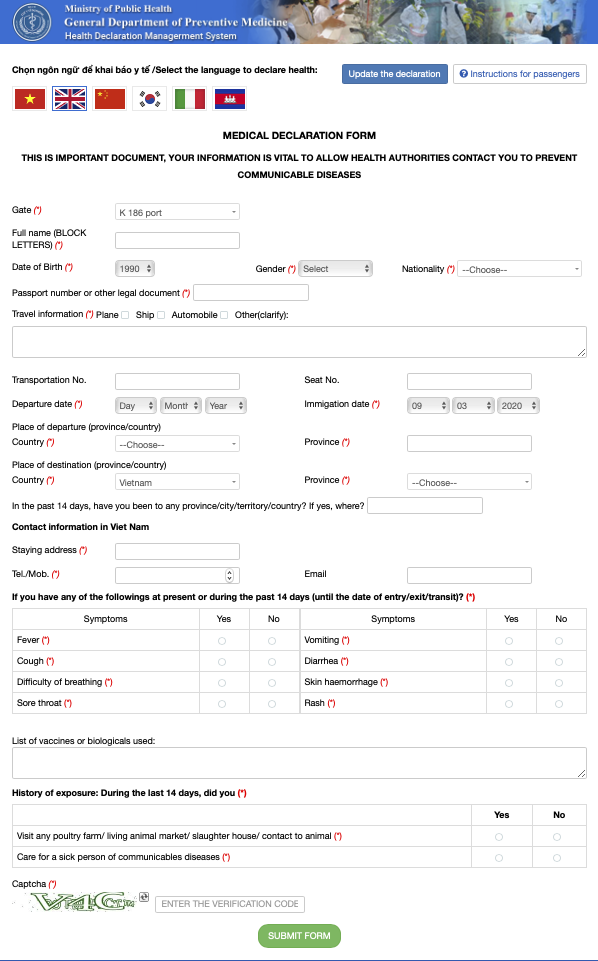
Note: This article was first published on March 9 and has been updated to include the latest developments.
About Us
Vietnam Briefing is produced by Dezan Shira & Associates. The firm assists foreign investors throughout Asia from offices across the world, including in Hanoi, Ho Chi Minh City, and Da Nang. Readers may write to [email protected] for more support on doing business in Vietnam.
We also maintain offices or have alliance partners assisting foreign investors in Indonesia, India, Singapore, The Philippines, Malaysia, Thailand, Italy, Germany, and the United States, in addition to practices in Bangladesh and Russia.
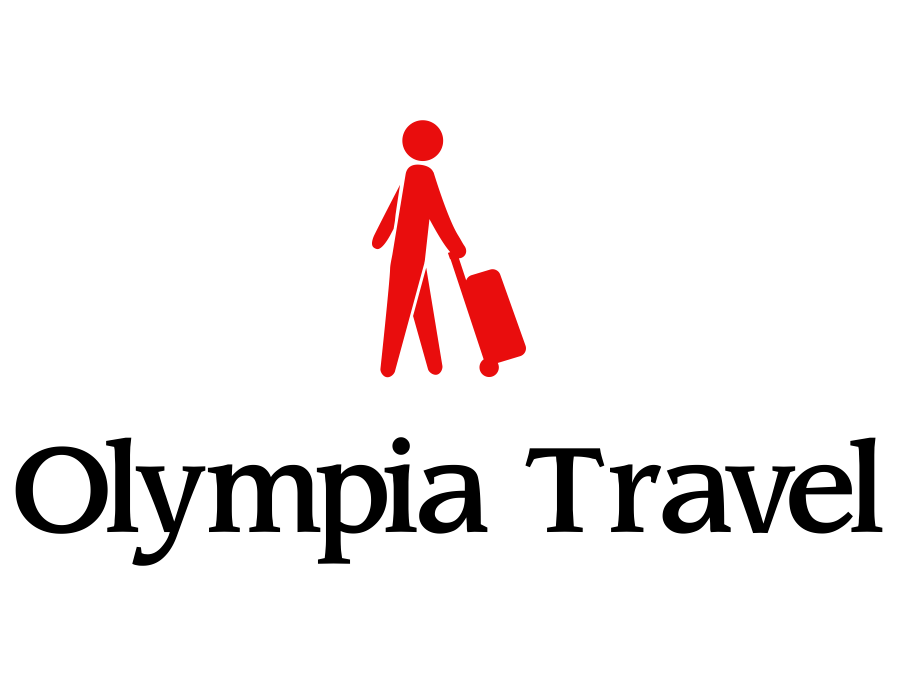
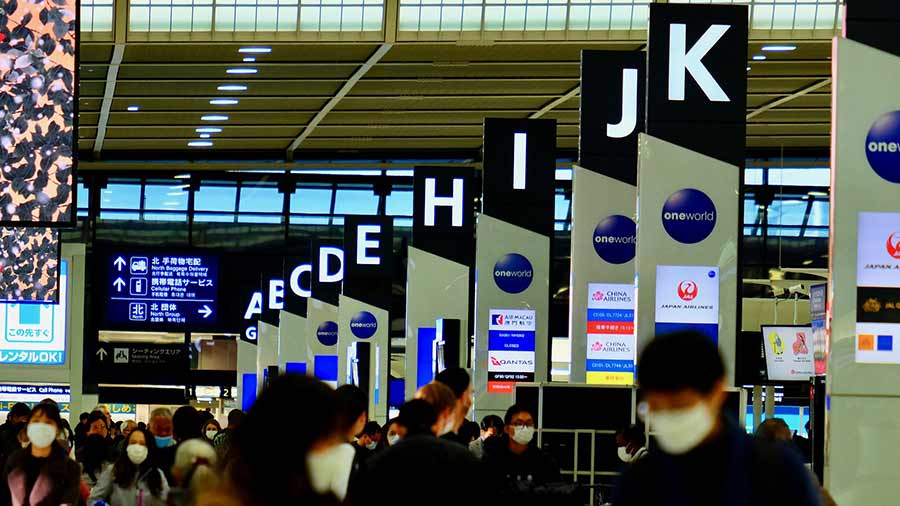
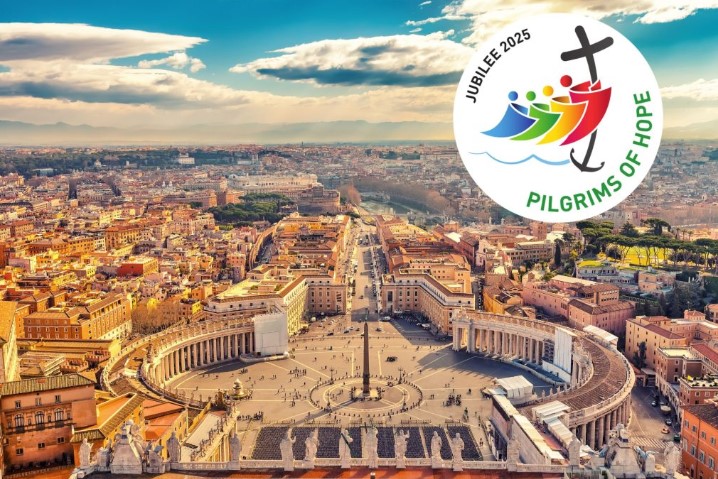
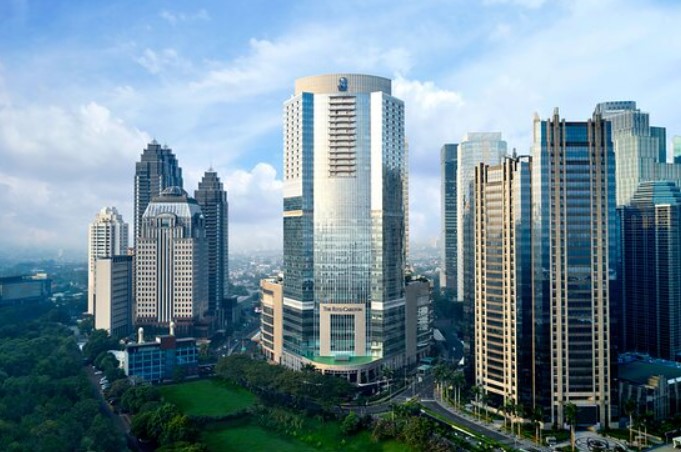
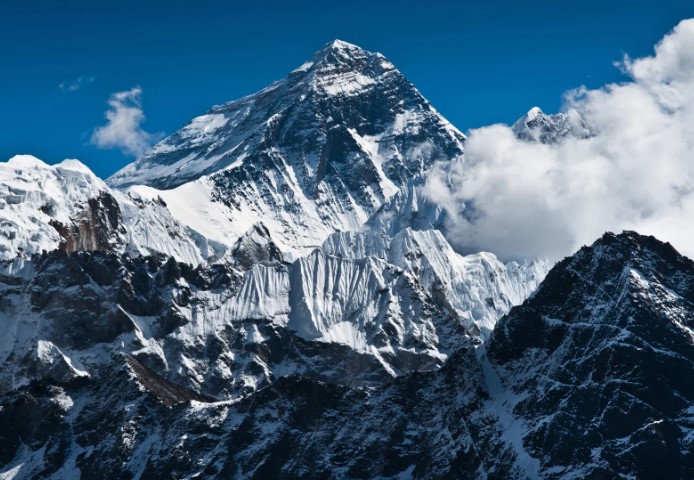
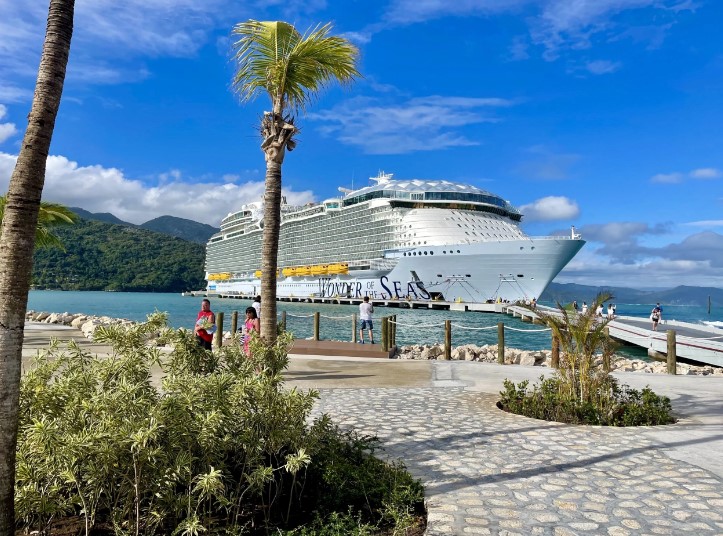
More Stories
France to Continue Issuing Visas to New Vietnamese Passport Holders, But They Cannot Be Used for Travel to Germany
Flag City Honor Flight trip for Vietnam era veterans
Travel firms in trouble after Germany denies visa for Vietnam’s new passports